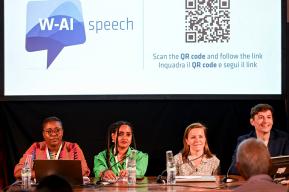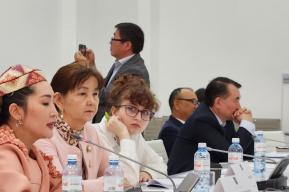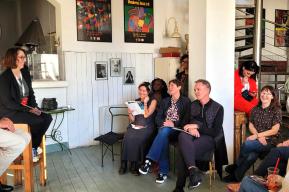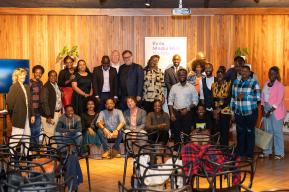News
Solutions towards media viability and data transparency explored at the World News Media Congress
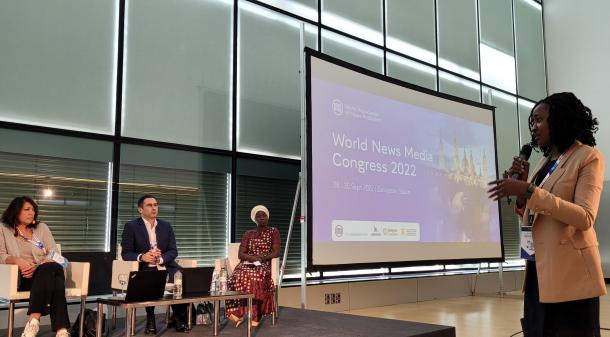
Independent media worldwide are struggling to make ends meet, and trailing behind Internet platforms in audiences, online advertising and harnessing of data. Compounding the sustainability of journalism is misinformation, the damaging impact from COVID-19 and economic fallout from the war in Ukraine. Given the important role of independent media in safeguarding democracy and fundamental rights, media viability has been a burning topic on the international agenda.
Data transparency, a new paradigm for media viability
During the World News Media Congress, UNESCO co-organized with WAN-IFRA further rounds of consultation about the issue of data transparency and its relevance and potential for media viability.
The discussions reflected on the context where policymakers in the EU and the US are promoting data transparency in the Internet sector. In the case of independent media and platform companies, greater access to data could help independent publishers perform better in terms of online advertising and visibility of content.
The sessions followed two earlier consultations, in April 2022 and May 2022 respectively, which explored what kind of data held by the Internet companies could be useful in improving the diminishing bottom lines of independent media. At the World News Media Congress, the agenda went one step further in defining concrete next steps for a “data ask” that would benefit media viability, while also providing a platform for dialogue between independent media and Internet companies.
Representatives from civil society and media noted how the policy context related to the issue of data access, and explored the prospects for pilot projects that could pool data from both news publishers and Internet companies in the interests of boosting the news business.
“Media viability is a strategic priority for UNESCO and its International Programme for the Development of Communication (IPDC), and we will continue to support this issue,” says IPDC Deputy Secretary Saorla McCabe, who participated in the discussions. UNESCO’s work about the importance of media viability is outlined in a video explainer and other initiatives including research by Economist Impact and a policy brief here.
Partnerships for media viability
Responding to the ongoing crisis facing news publishing, numerous stakeholders have launched different initiatives such as revenue diversification, advocacy for compulsory bargaining with big tech, and business training. These initiatives could have more impact through improved coordination and cooperation between media development organizations on the one hand, and media houses on the other.
In order to deepen synergies and foster cooperation, the World News Congress also saw UNESCO, WAN-IFRA, and the Global Forum for Media Development (GFMD) co-host a session “Keep The Lights On And The News Flowing: An exchange of tools, tactics and financial strategies from donor funded projects to support viable media businesses”. The discussion, on 28 September at WAN-IFRA’s World News Media Congress 2022, brought 80 representatives from both media development organizations and the news industry together to exchange data, research, experience, best practices, and pitfalls.
Partnerships are vital to address the global challenge of securing the sustainability of news enterprises, and pooling information about resources and experiences is one of the fruits of co-operation.
The sessions were organized with the financial support of UNESCO’s International Programme for the Development of Communication, which provides funding to grassroots media development projects in developing countries, countries in transition and conflict and post-conflict contexts. Click here to find out more about IPDC’s initiatives and resources to address the challenges of media viability.


